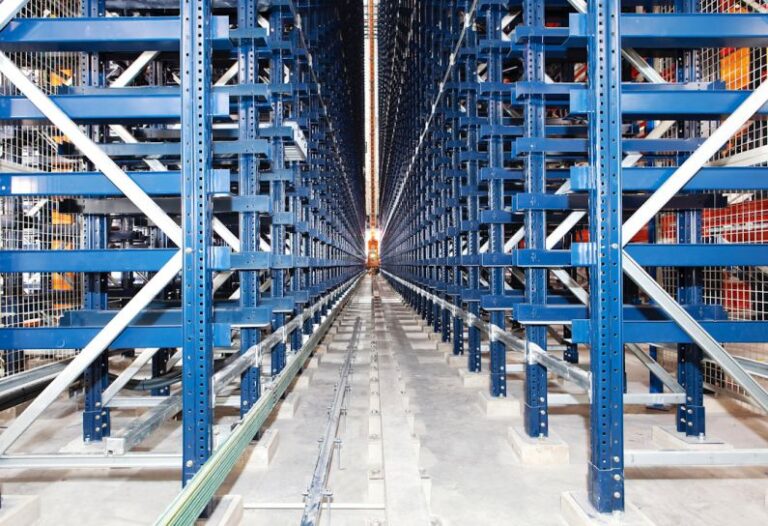The Impact of Blockchain on Supply Chain Transparency
Blockchain technology has revolutionized various industries by providing a decentralized and transparent platform for secure transactions. One sector that has significantly benefited from blockchain is supply chain management. The integration of blockchain technology in supply chains has brought about increased transparency, efficiency, and trust among stakeholders. This article delves into the impact of blockchain on supply chain transparency and how it has transformed the way businesses operate and interact within the global marketplace.
Enhancing Traceability and Accountability
One of the key benefits of blockchain in the supply chain is its ability to enhance traceability and accountability. Traditional supply chain systems often lack transparency, making it challenging to track the movement of goods from their origin to the final destination. With blockchain, each transaction is recorded in a secure and immutable ledger, providing a transparent and tamper-proof record of every product’s journey through the supply chain. This level of traceability enables businesses to identify and address issues such as counterfeit products, theft, or inefficiencies in real-time, thus ensuring accountability across the supply chain network.
Improving Inventory Management and Efficiency
Blockchain technology has also revolutionized inventory management by providing real-time visibility into the movement of goods. By leveraging blockchain’s decentralized ledger, businesses can accurately track inventory levels, monitor stock movements, and optimize supply chain processes. This increased transparency and efficiency lead to reduced operational costs, minimized stockouts, and improved overall inventory management. With blockchain, stakeholders can access up-to-date information on inventory levels, demand forecasts, and production schedules, enabling them to make informed decisions and streamline operations for enhanced efficiency.
Mitigating Fraud and Counterfeiting
Fraud and counterfeiting are significant challenges in supply chain management, leading to substantial financial losses and reputational damage for businesses. Blockchain technology offers a robust solution to combat these issues by providing a secure and transparent platform for verifying the authenticity of products. Through the use of unique digital signatures and cryptographic algorithms, blockchain ensures that each product’s provenance is securely recorded and verified at every stage of the supply chain. This immutable record makes it nearly impossible for counterfeit products to infiltrate the supply chain, thereby safeguarding brand reputation and consumer trust.
Facilitating Trust and Collaboration
Blockchain promotes trust and collaboration among supply chain stakeholders by establishing a decentralized network where transactions are securely recorded and shared in real-time. By eliminating the need for intermediaries and central authorities, blockchain fosters a trustless environment where all parties can engage in transparent and secure transactions. This trust and transparency are essential for building strong relationships among suppliers, manufacturers, distributors, and customers, leading to improved collaboration, reduced disputes, and enhanced overall supply chain performance. With blockchain, stakeholders can confidently engage in transactions knowing that the information shared is accurate, secure, and tamper-proof.
Empowering Sustainable and Ethical Practices
In recent years, there has been a growing emphasis on sustainability and ethical practices within supply chains. Blockchain technology plays a crucial role in promoting sustainability by enabling businesses to track and verify the environmental and social impact of their products. By recording data such as sourcing locations, production methods, and labor practices on the blockchain, companies can ensure that their products meet stringent sustainability standards and ethical guidelines. This transparency not only enhances brand reputation but also empowers consumers to make informed choices and support businesses that prioritize sustainability and ethical practices.
Driving Innovation and Adaptability
Blockchain technology is driving innovation and adaptability in the supply chain industry by introducing new possibilities for automation, optimization, and digitization. By leveraging smart contracts, IoT devices, and AI algorithms, businesses can create autonomous supply chain systems that operate with increased efficiency and accuracy. These innovative solutions enable stakeholders to respond quickly to changing market dynamics, mitigate risks, and capitalize on new opportunities. Blockchain’s transparent and decentralized nature provides a solid foundation for digital transformation within the supply chain, paving the way for a more agile, resilient, and competitive industry.
In conclusion, the impact of blockchain on supply chain transparency cannot be understated. By enhancing traceability, accountability, inventory management, fraud mitigation, trust, sustainability, innovation, and adaptability, blockchain technology is reshaping the way businesses operate and interact within the global supply chain ecosystem. As more companies embrace blockchain solutions, the industry will continue to evolve, driving efficiency, trust, and sustainability across the supply chain network. Embracing blockchain technology is not just a competitive advantage but a necessity for businesses looking to thrive in the digital age.






